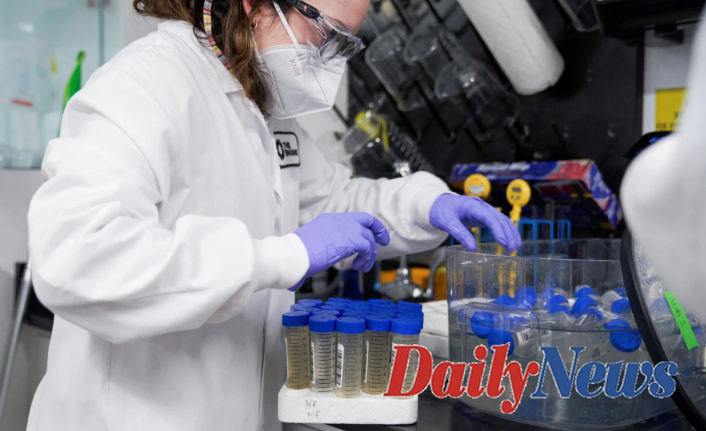On Tuesday, government scientists confirmed that there was an increase in the presence Covid-19in water samples from the U.S.
This potentially worrying trend is occurring as the United States begins to shed masks and ease pandemic restrictions that were intended to stop the spread of a virus which has already killed almost a million Americans over the past two years.
After Bloomberg reported that the federal Centers for Disease Control and Prevention recognized the rise, said that one-third of its wastewater sampling sites had seen an increase in Covid cases between March 1 and March 10.
This was twice the number it was between Feb. 1 and Feb. 10, when the highly contagious omicron variant had roared throughout the country during the holiday period was beginning to wane. The Bloomberg analysis of CDC data showed that this was the case.
Amy Kirby, the CDC's head of the wastewater monitoring program, stated in a statement that although wastewater levels are generally low, there is an uptick in sites reporting an increase. These bumps could simply be a minor increase in wastewater levels from very low to still low levels.
Kirby stated that Covid-19 infection rates may be increasing in some communities, even though prevention strategies in many states have changed over the past weeks.
According to the agency, the CDC's testing program only covers areas that collect and report on wastewater surveillance. It does not provide a national representation for Covid spread.
It is not clear if this is a warning sign for things to come.
Kirby stated that it was too early to predict if the current trend will continue, or if there will be an increase in reported cases throughout the country.
However, Dr. Sadiya Khan of Northwestern University Feinberg School of Medicine said that the latest findings were cause for concern.
Khan stated in an email that "this increase is not surprising and is of grave concern due to the loosening restrictions for activities, masking in schools or communities." "If you look at the patterns in Europe, you will see that there has been an increase over the past few days." We have learned something from this pandemic: the trends in Europe are always ahead of ours.
Khan was referring specifically to the sharp rise in European cases due to a new variant of Covid-19 that public health specialists have warned about, even though Covid-19 cases are decreasing in America.
Khan stated that we have the tools necessary to combat any new Covid epidemic.
Khan stated that the response should not be alarmist but rather focus on the things which work: vaccines/boosting and masking. Khan stated, "I will not be removing my mask any time soon."
Cynthia Gibas is the head of the University of North Carolina's wastewater surveillance program. She agreed.
Gibas stated to NBC News that "we shouldn't panic about this, but it is important that we monitor it closely over the next few days."
A week can pass before PCR testing can detect the presence of Covid-19 in sewage. Infected people may have symptoms for several days before showing any symptoms. A Covid-19 test is recommended.
However, wastewater is not the only indicator of a possible resurgence of Covid cases.
Gibas stated, "Even though suddenly more people feel the need to be tested, that is an indicator that something might be happening."
The opinions of public health experts were presented by the White House warning that the U.S. would soon run out funding for future Covid booster shot, new treatments, and testing efforts if spending legislation is not changed in Congress.
In a sign that normalcy is returning, the Biden administration announced that public tours of White House will resume Fridays and Saturdays for the first time since 2002. This announcement was made on April 15.
According to the CDC, less than 75 percent have received at least one vaccine against Covid-19.
The unvaccinated continue to account for most of the reported Covid-19 deaths, according to analysis by the CDC and the Kaiser Family Foundation.












